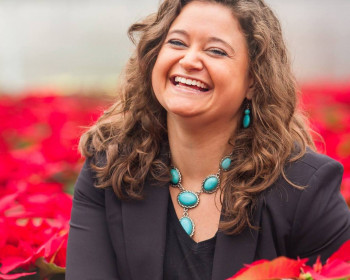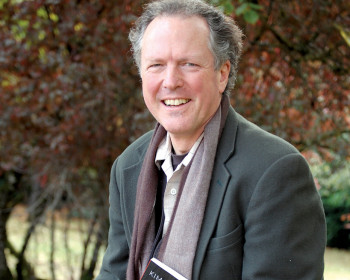Graduate student serves on MENTE Summit board, empowers Latinx students to pursue higher education
Open gallery

On March 6, 2020, a team of students and professionals across a variety of fields came together to support and empower young Latinx men at the 4th annual MENTE Summit at Linfield College in Oregon. MENTE’s mission is to bring together high school Latinx males to connect with community leaders and professionals in order to encourage them to pursue higher education.
Why focus specifically on Latinx males? Carlos Sánchez Huizar (BA ’18, MA ’20), a current Student Affairs Administration student at the Graduate School of Education and Counseling and MENTE volunteer, cites the following evidence:
More Latinxs than ever are entering college, but Latinx men are being left behind. For every five associate and bachelor’s degrees awarded to the Latinx community, only two are awarded to Latinx males (Sáenz & Ponjuan, 2011, p. 9). It is likely that if left ignored this gap could more than double by the year 2040 (Sáenz & Ponjuan, 2012, p. 5).
The National Center for Education Statistics (NCES) defines college enrollment as the percentage of 18-to 24-year-olds enrolled as undergraduate or graduate students in 2 or 4-year institutions. Between 2000 and 2017, overall college enrollment rates increased for young adult males from 35% to 40%. Among Latinx males, college enrollment rates were higher in 2017 than in 2000. However, compared to their female counterparts, Latinx males have shown to have lower enrollment rates with a 10% equity gap. Detailed information on college enrollment is available from NCES.
In Oregon, the 4-year degree completion rate for male and Latinx students who entered high school in 2004 was 17 percent points lower compared to the overall state average (Oregon Learns, 2015). Compared to their female counterparts, Latinx males earned 4-year degrees at close to half the rate (9 percent compared to 5 percent). Overall, only 5 percent of Oregon male Latinx students earned a 4-year degree (Vazquez Cano, 2019).
“MENTE Summit is the definition of community organizing,” says Sánchez Huizar. “Most of the people involved in the happening of MENTE are all volunteers from different professional fields, ranging from educators in higher education, K-12, police enforcement, superintendents, community organizers, and more. I joined the MENTE team because of the efforts and the commitment to empower Latinx males through leadership, identity development, education, and economic advancement.”
This year’s summit kicked off with a keynote address by Jaime Arredondo, executive director of the CAPACES Leadership Institute, with attendees later selecting from 16 workshops that focused on identity development, educational/career pathways, financial literacy, and networking/building connections. They also participated in a college and career fair and toured the Linfield campus.
Over 400 high school students—mostly all Latinx males—attended the event, along with a variety of educators, community partners, and volunteers.
“MENTE promotes leadership, networking, and community among male Latinx students, something that is not commonly seen,” says David Trujillo, Portland State University student and MENTE 3rd year attendee. “MENTE empowers young Latinx men who don’t commonly get to see Latinx males in different professional fields.”
This year MENTE Summit offered $8,000 in scholarships to high school and college students to attend. Sponsors included Linfield College, The Ford Family Foundation, Chemeketa Community College, Lewis & Clark College, Pacific University Oregon, Sheriff Washington County, Higher Education Coordinating Commission, Mekdesign, Portland Community College Trio Program, PCC for Inclusion & Equity, and the Oregon Community Foundation.
Co-founder José Esparza explains the summit’s significance in a simple yet powerful statement: “MENTE means the opportunity to empower the next generation of Latinx men.”
References
Oregon Learns. (2015). The Education Pathway. Retrieved from: http://data.oregonlearns.org/?ethnicity=4&gender=M
Sáenz, V. B., & Ponjuan, L. (2011). Men of Color: Ensuring the Academic Success of Latino Males in Higher Education. Institute for Higher Education Policy.
Sáenz, V. B., & Ponjuan, L. (2012). Latino males: Improving college access and degree completion—A new national imperative. Perspectivas: issues in higher education policy and practice.
The Condition of Education - Postsecondary Education - Postsecondary Students - College Enrollment Rates - Indicator February (2019). (2020). Nces.ed.gov. Retrieved 19 March 2020, from https://nces.ed.gov/programs/coe/indicator_cpb.asp
Vazquez, Cano. (2019). Improving 4-Year Attainment for Oregon Latino Males.
Graduate Communications is located in room 205 of Rogers Hall on the Graduate Campus.
voice 503-768-6054
fax 503-768-6053
Graduate Communications
Lewis & Clark
615 S. Palatine Hill Road
Portland OR 97219

